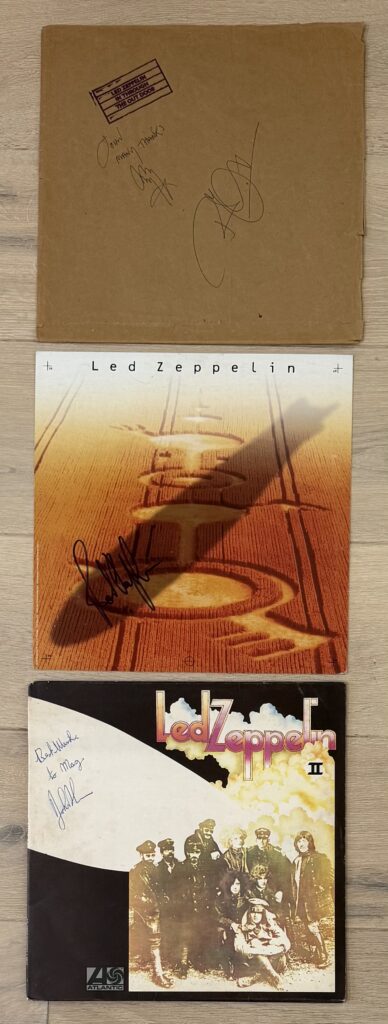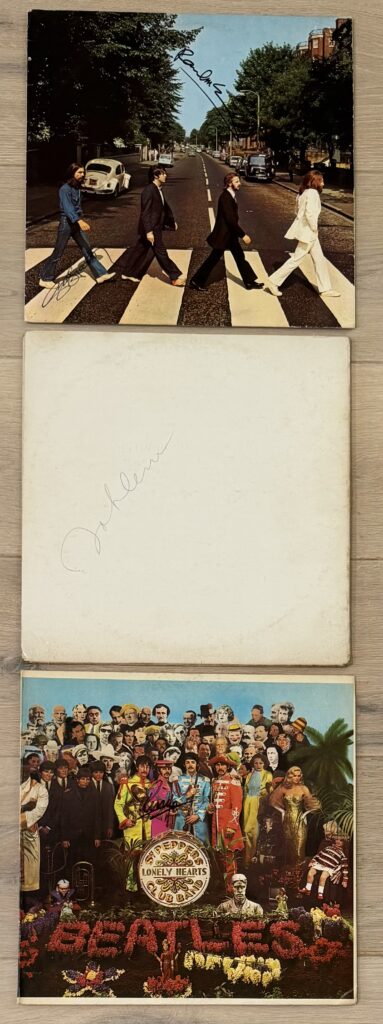THE ACTUAL BMI AWARD PRESENTED THE BEATLES FOR ‘YELLOW SUBMARINE’ IN 1966
1966 Citation of Achievement given to The Beatles by Broadcast Music Inc. (BMI) in recognition of the popularity of the single “Yellow Submarine.” John Lennon and Paul McCartney are listed as the authors. Accompanied by a certificate of authenticity from Tracks Ltd.
BMI awards are presented annually, and are based on trade paper polls of national popularity and public acceptance, reflecting record and sheet music sales, radio and television performances, coin machine plays and other factors measured in these polls.
“Yellow Submarine” was the quintessential song from the Beatles’ 1966 album, Revolver. It was also issued on a double A-side single, paired with “Eleanor Rigby”. Written as a children’s song by Paul McCartney and John Lennon, it was drummer Ringo Starr’s vocal spot on the album. The single went to number one on charts in the United Kingdom and several other European countries, and in Australia, Canada and New Zealand. It won an Ivor Novello Award for the highest certified sales of any single written by a British songwriter and issued in the UK in 1966. In the US, the song peaked at number two on the Billboard Hot 100 chart. As a result of its popularity Lennon and McCartney won our BMI Citation.
The Beatles recorded “Yellow Submarine” during a period characterized by experimentation in the recording studio. After taping the basic track and vocals in late May 1966, they held a session to overdub nautical sound effects, party ambiance and a chorus singing, recalling producer George Martin’s previous work with members of the Goons. As a novelty song coupled with “Eleanor Rigby”, a track devoid of any rock instrumentation, the single marked a radical departure for the group. The song inspired the 1968 animated film Yellow Submarine and appeared as the opening track on the accompanying soundtrack album.
In the US, the release of “Yellow Submarine” coincided with the controversies surrounding Lennon’s “More popular than Jesus” remarks – which led some radio stations to impose a ban on the Beatles’ music – and the band’s public opposition to the Vietnam War. The song received several social and political interpretations. It was adopted as an antiauthority statement by the counterculture during Vietnam War demonstrations and was also appropriated in strike action and other forms of protest. Some listeners viewed the song as a code for drugs, particularly the barbiturate Nembutal which was sold in yellow capsules, or as a symbol for escapism. The song is a cultural icon.




